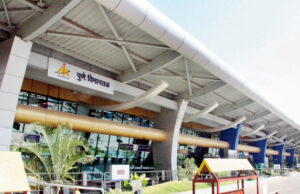E-commerce Faces Challenge as Indian Malls Welcome 24 Global Brands

National, October 09: Demonstrating remarkable resilience, India’s shopping centers are carving out a distinctive niche in the retail landscape by embracing 24 global brands, even as the e-commerce sector expands exponentially. These retail destinations, located in cities like Mumbai, Delhi NCR, Bengaluru, Hyderabad, and Chennai, have emerged as lively hubs for both retail therapy and community engagement.
As of the first half of 2023, the combined operational retail space in these major Indian cities amounts to an impressive 89 million square feet. This robust physical retail presence underscores the enduring appeal of in-person shopping experiences and reflects the Indian consumer’s preference for brick-and-mortar retail.
Indian shopping centers have undergone a transformation into multifaceted community hubs where visitors come not only to shop but also for entertainment, relaxation, social interaction, and personal enrichment. This evolution has played a pivotal role in their continued success, offering an experiential dimension that e-commerce platforms find challenging to replicate.
Investors are taking notice of this resurgence, with India’s shopping centers emerging as attractive investment prospects. The convergence of a burgeoning Gen Z demographic, a skilled workforce, increasing purchasing power, and robust GDP growth has created a favorable environment for investments in shopping centers.
The recent “Shopping Centres Next 2023” event, held in Bengaluru on October 3, 2023, provided a platform for industry leaders, experts, and enthusiasts to explore the promising prospects within the shopping center sector. Conversations at the event shed light on the evolving role of shopping malls in India, underscoring their transformative impact as centers for community engagement, technological integration, and economic growth.
Rajendra Kalkar, President – Malls & Whole Time Director at the Phoenix Mills Ltd., emphasized the potential for substantial returns in the retail space. He highlighted the integration of complementary businesses such as hotels, hospitals, data centers, or warehousing as a means to maximize returns. Kalkar’s insights also underscored India’s robust purchasing power and its growth potential, positioning shopping centers as an appealing investment avenue.
Furthermore, it was stressed that shopping centers must embed themselves within the community from the outset. For Gen Z, shopping centers are more than just retail spaces; they serve as vital hubs for community building. Initiatives such as health awareness programs, wellness and fitness activities, and art projects can enhance the community-centric appeal of these spaces.
Jayen Naik, COO of Nexus Malls, pointed to the immense potential for retail real estate investments in Tier 2 and 3 cities across India. He highlighted factors such as rising disposable income, a growing skilled workforce, and a young population as key drivers of consumption growth in these regions. Naik emphasized the opportunity for creating compelling real estate projects with the right research and planning.
In conclusion, Indian shopping centers are defying e-commerce trends and embracing a promising future as they evolve into dynamic hubs for retail, community, and growth. The influx of 24 global brands signals a resurgence in physical retail, attracting investors eager to participate in India’s thriving shopping center sector.








